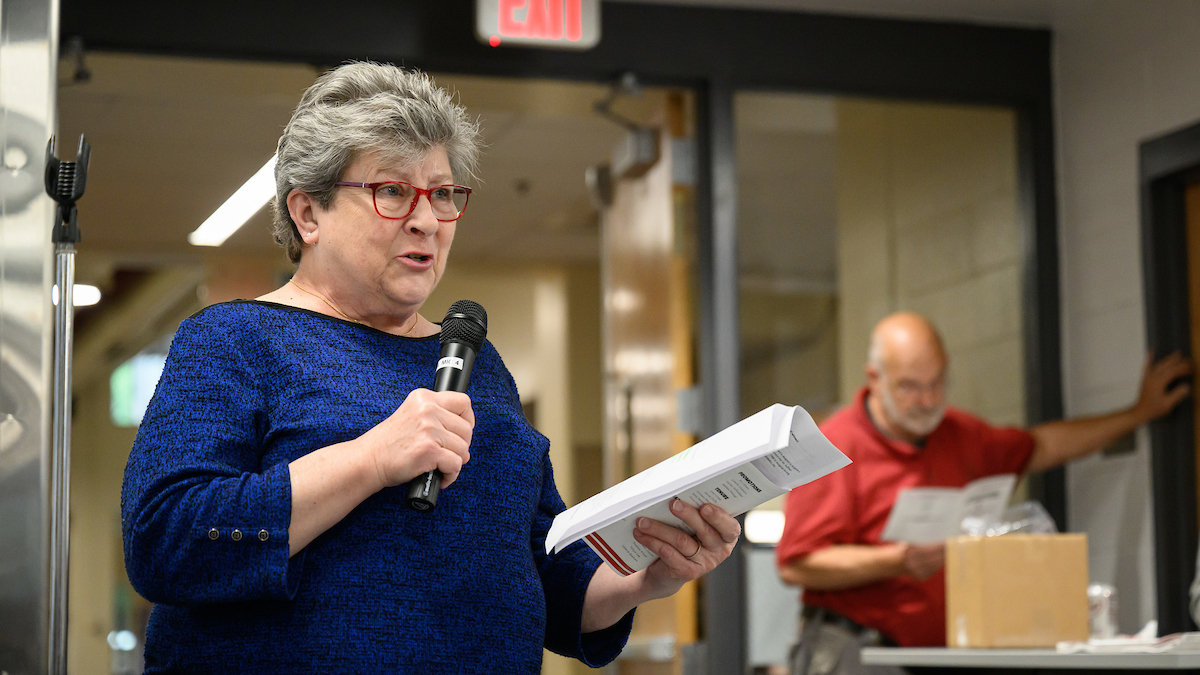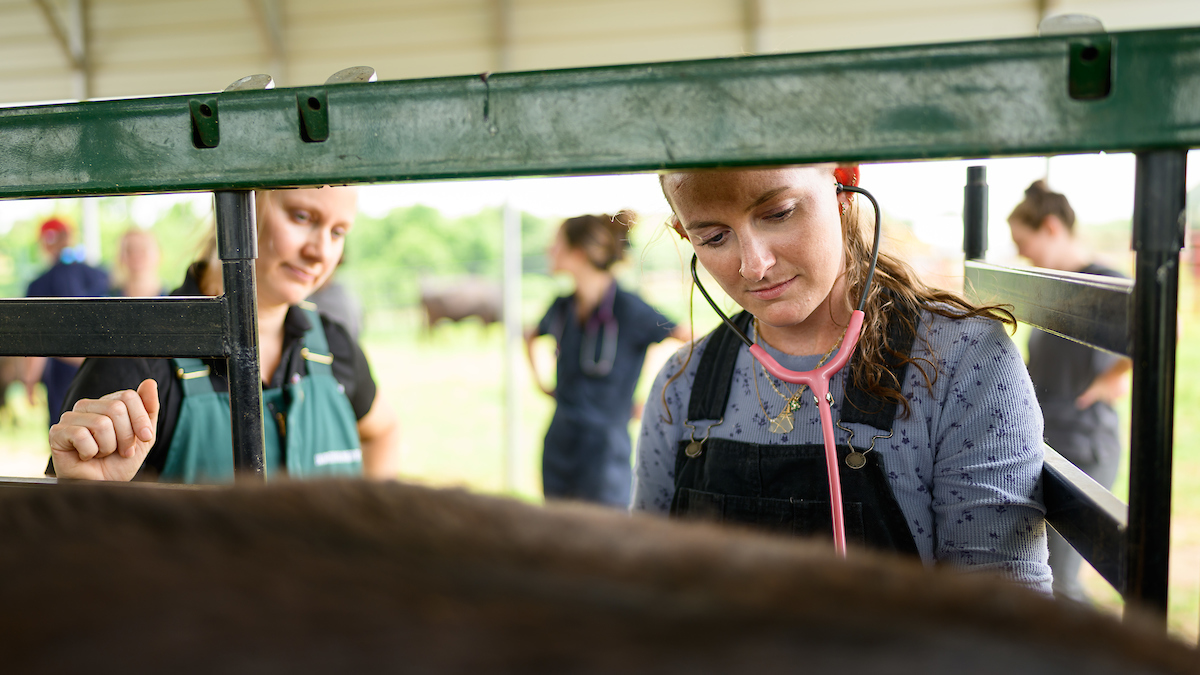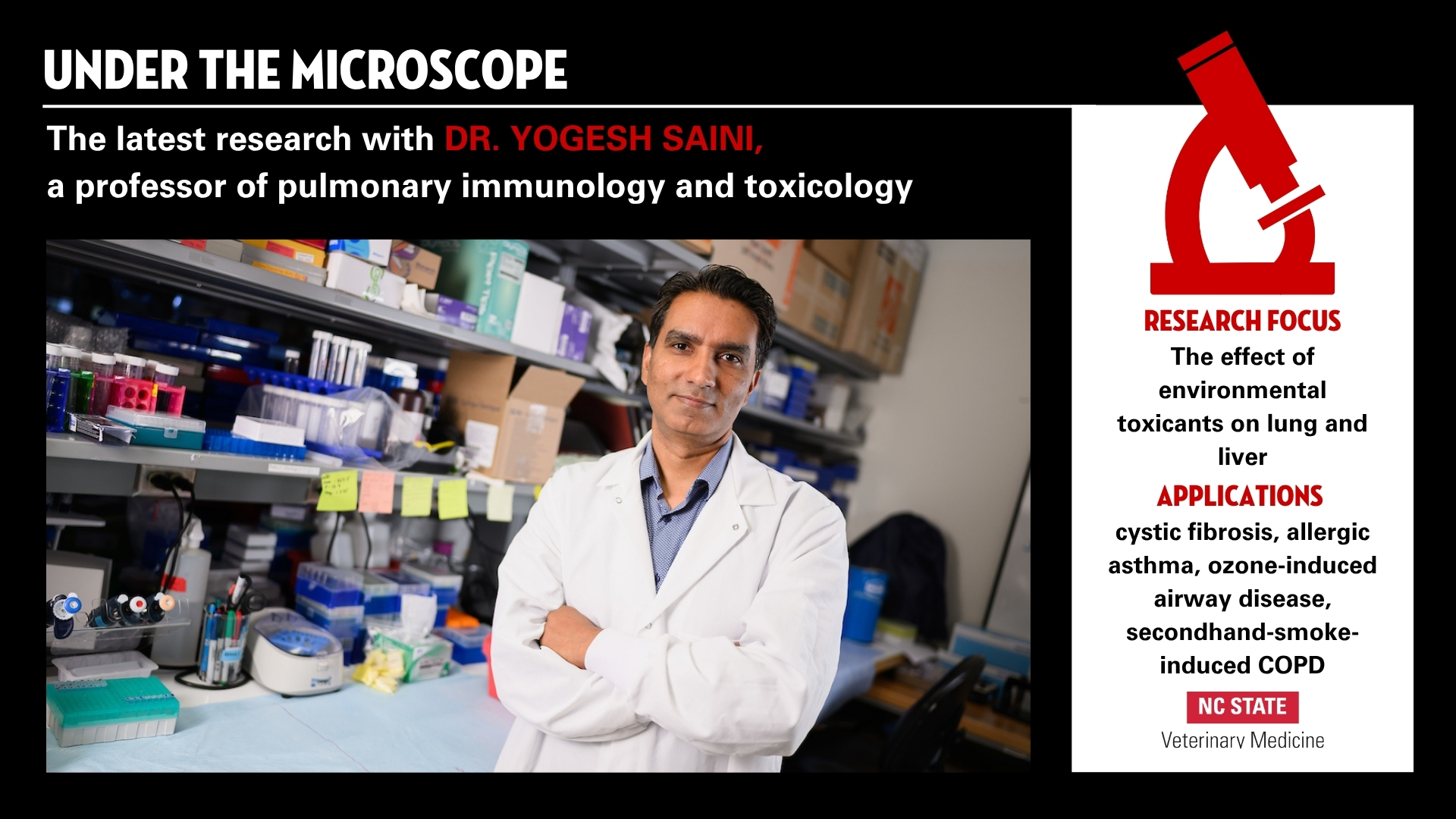Cray Takes Reins of NC State College of Veterinary Medicine’s Global Health Program

Dr. Paula Cray is the new director of the NC State College of Veterinary Medicine’s Global Health Program, whose mission is to examine global issues and advance knowledge in ways that improve human health, animal health and the environment.
“I am very excited to work with Dr. Cray in this new role,” says Dr. Kate Meurs, dean of the college. “Paula has a great degree of experience and knowledge in the area of global health and I know will move the college forward in new ways. She has plans to increase our opportunities for both faculty and trainees in some key geographical regions. This will be an exciting next stage for the CVM Global Health Program.”
Four years ago, the veterinary college combined its global health education and global health research programs into one innovative program led by Dr. Sid Thakur, professor of molecular epidemiology. Global health is so important universitywide that in September NC State launched a Global One Health Academy, which Thakur now directs, to engage the NC State community in improving the health of animals, plants, biodiversity, humans and society in North Carolina and beyond.
At the College of Veterinary Medicine, the Global Health Program unites multidisciplinary research with veterinary education to solve some of our greatest global health challenges.
“Veterinarians have an increasingly important role to play in addressing global challenges,” says Cray, who most recently directed the veterinary college’s Population Health and Pathobiology Department. “We can help in areas such as infectious disease control, antimicrobial resistance, food security and global environmental health. I am excited to grow our program, enabling continual reciprocal exchange of faculty and students with collaborators globally.”
The program’s strategic goals are to advance global health through multidisciplinary research, global partnerships and capacity building in education, research and healthcare.
“There are no geographic boundaries when it comes to the dissemination of diseases and problems any more,” Cray says. “Global travel, the expansion of the food supply, climate, deforestation and other factors are ideal situations for ‘globally shared problems’ to become the norm rather than the exception, and I emphasize the word ‘shared.’”
Under Cray’s leadership of the Department of Population Health and Pathobiology, the NC State College of Veterinary Medicine was designated a collaborating center for the World Health Organization. The center aids the WHO in its efforts to combat foodborne antimicrobial resistance worldwide.
“We take the ‘one health’ approach to combating antibiotic-resistant bacteria in developing nations with strong surveillance of foodborne pathogens in animal populations,” Cray says. “We focus on assisting WHO to improve global surveillance networks, train developing nations in best practices for identifying AMR bacteria of concern and integrating AMR data using new artificial intelligence tools.”
The NC State College of Veterinary Medicine also offers its students a chance to earn a Certificate in Global Health, which covers the global disease burden, health determinants and disparities, health policy and actors, and the challenges facing global health. The program also provides an introduction to the methodological approaches and techniques used in global health research, including developing laboratory skills, qualitative fieldwork, quantitative surveys, experimental designs, intervention trials and program evaluation.
‘We need to train students to understand the true scope of emerging issues,” Cray says. “These issues are not limited to developing countries, but transcend geographic boundaries requiring global vigilance. We hope to provide faculty and students with opportunities to work with world-class researchers in the European Union, Africa and Latin America.”


